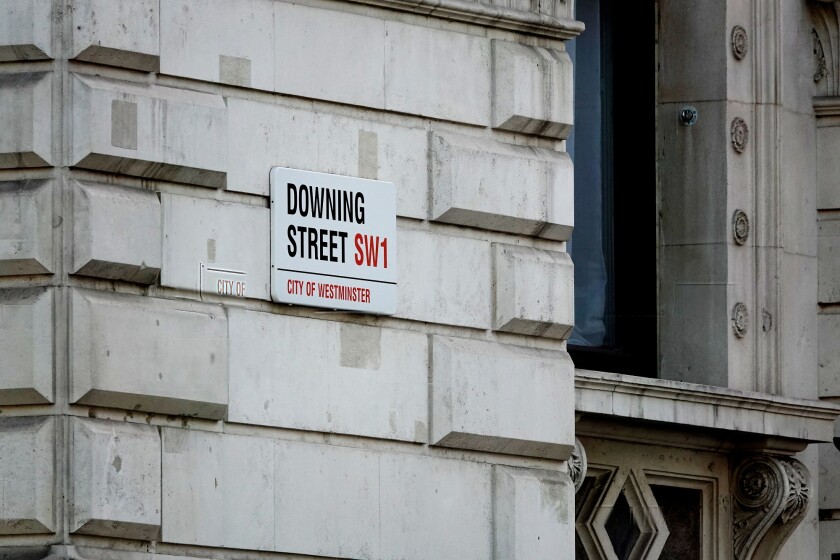The UK government is more worried about the consequences of rash tax policymaking than making any changes at all.
It comes as Chancellor Jeremy Hunt is preparing the spring budget statement in March but has told Conservative members of Parliament that he won’t be announcing any tax cuts.
“We don’t have enough headroom to announce tax cuts at this point,” one Treasury source told The Guardian newspaper last week. “It wouldn’t be responsible. Our focus is wholly on steadying the economy and, with that, repairing our economic reputation.”
Some Conservative strategists want to cut taxes ahead of the next general election, but Prime Minister Rishi Sunak is charting a wary course for the time being. He has set out to stabilise an economy still recovering from the pandemic and the shock of the September 2022 mini-budget under Liz Truss.
Truss tragedy
Truss’s brief and tumultuous tenure as prime minister has left UK leaders reticent about tax reform. She startled the markets with plans to abolish the top rate of 45% income tax, eliminate the 1.25% national insurance increase and keep corporate tax to 19%.
Plenty of tax professionals initially cheered on the Truss government because the tax burden would have been much lower as a result. However, the timing of the tax cuts and the lack of costing made the plan look like hubris and not sound economic strategy.
Financial institutions may not want high taxes, but the industry feared deficit-financed tax cuts with no long-term plan for recouping the losses. Truss was more worried about being outflanked on energy policy given the cost-of-living crisis than reassuring the financial sector of her plans.
Worse still, Truss and then-Chancellor Kwasi Kwarteng assumed her government had fiscal credibility no matter what. Truss and Kwarteng spooked the markets and caused a meltdown. Pound sterling fell to historic lows and Truss was forced to retreat on her tax plan.
After Kwarteng departed in October 2022, Hunt’s first move as chancellor was to throw out the Truss tax plan in order to stabilise the financial markets. This was a wise decision, but it’s also made UK political leaders more reticent on tax.
Playing it safe
It’s not just Sunak and Hunt who are playing it safe on tax policy. Labour leader Keir Starmer has pledged not to raise taxes, citing the Office for Budget Responsibility’s claim that the UK tax burden is at its highest in 70 years.
He has argued that the UK government could increase public spending without tax hikes if the economy rebounds. Labour hopes to raise more revenue by improving economic growth. This is a sound plan, in theory, except the UK hasn’t had strong economic growth for several years.
Starmer clearly hopes to repeat the best feats of New Labour from the 1990s and early 2000s. While it’s true New Labour could count on higher growth, the Tony Blair and Gordon Brown governments also presided over a corporate tax rate of 30%. If Labour wins the next election, they will inherit a lower corporate rate and a much weaker economy.
It’s clear why Starmer would want to position Labour as the party of fiscal responsibility following the disastrous mini-budget. But this safety-first strategy may turn out to be less safe once in power.
Starmer may well win the next election, but he risks boxing himself into a corner. If Labour can’t deliver economic growth, then the Starmer government will have to choose between higher taxes or more austerity.
At the same time, Starmer has tried to shake off the ‘big spending’ record of his predecessor Jeremy Corbyn. However, Corbyn was happy to argue for a higher corporate tax rate and more fundamental changes to the tax system.
Labour went into the 2019 general election with a plan to introduce formulary apportionment into the UK tax system. This would have been the most dramatic change to UK tax in decades, and much more significant than any rate increase.
Whether you think this radical policy was a good idea or not, there was a clear choice for voters at the ballot box. Today, both the Conservative Party and Labour appear to have lost their ambition for tax policy.
Former Prime Minister David Cameron and Chancellor George Osborne supported greater tax transparency measures in the form of public beneficial ownership registers in 2013. The coalition government they were running cut corporate tax from 28% to 20% in just five years.
Osborne wanted to reduce the corporate rate to 15% and managed to secure lowering it to 17% before he left office in 2016. This rate change was later cancelled, and the headline rate has drifted at 19% since 2019. It’s due to rise to 25% in April this year.
Now both sides of the political aisle fear spooking the financial markets. Extra care has to be taken not to do this when it comes to dramatic policy changes. Tax cuts have to come with a long-term fiscal plan, just as tax hikes should do.
Politicians have to prepare the ground for reform rather than spring it on the country last minute. This is why a lack of serious debate on UK tax reform may be a problem for future governments. A u-turn on taxes could cost the government dearly, whether it is Conservative or Labour.











